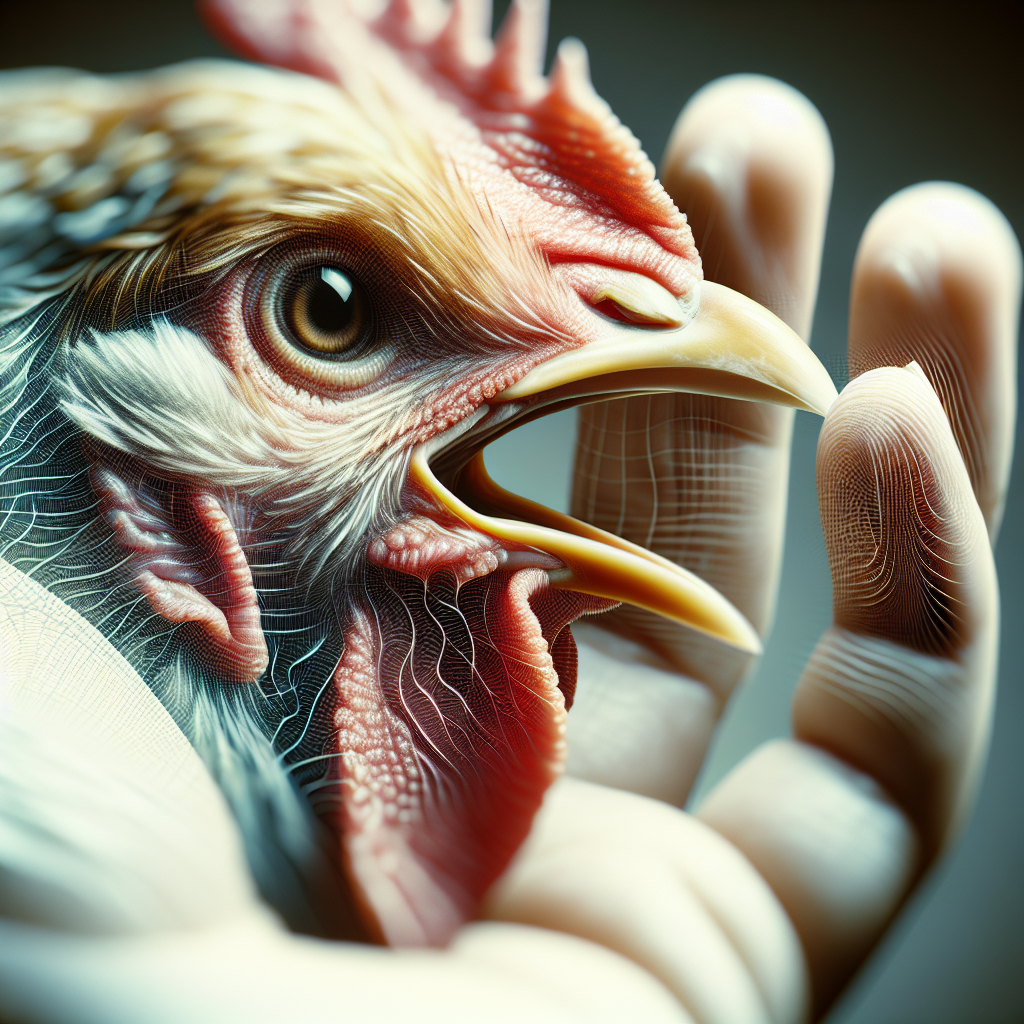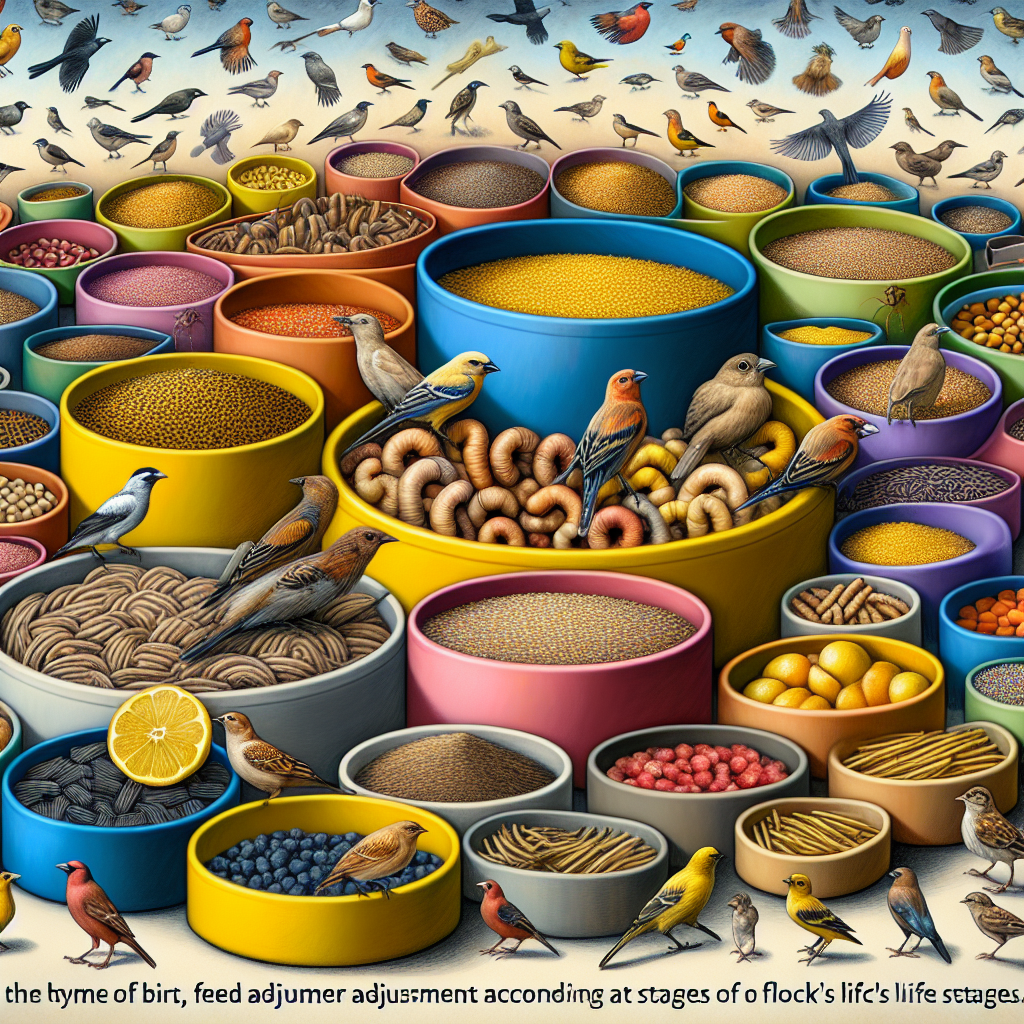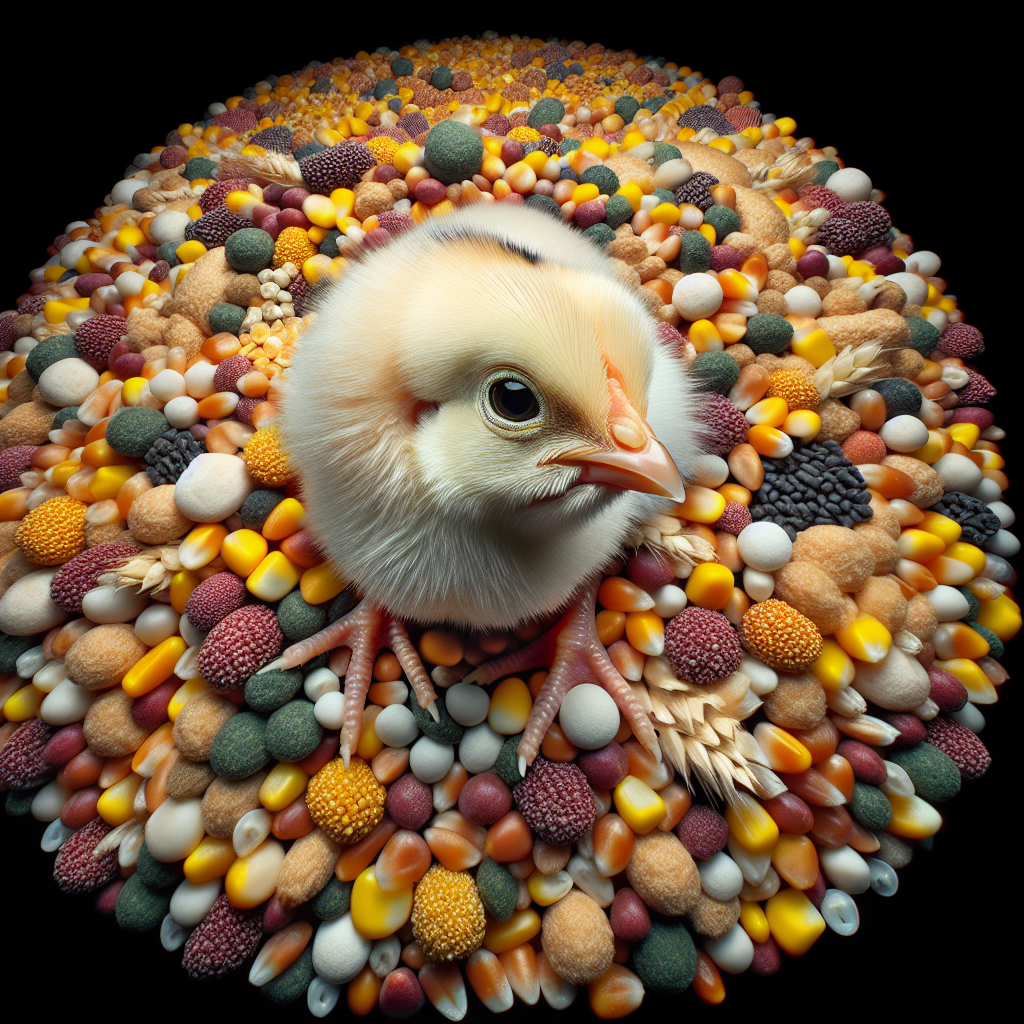In this article, we explore the possibility of feed types specifically designed for chickens with specific health issues. If you are a chicken owner and have encountered health problems in your flock, you may be wondering if there are specialized feeds that can help address these issues. We will delve into the importance of nutrition in poultry health and look at whether or not tailored feed options exist to support the well-being of chickens with specific health concerns. Whether it’s digestive disorders, respiratory issues, or even nutrient deficiencies, we aim to provide valuable insights on how you can provide the best care for your feathered friends.
Common Health Issues in Chickens
Keeping chickens healthy is essential for their well-being and productivity. Just like any other living beings, chickens are prone to various health issues. In this article, we will explore some of the most common health problems that chickens may face and discuss the feed types that can help alleviate these issues.
Respiratory Problems
Respiratory problems can be a major concern for chicken owners. Chickens are susceptible to a range of respiratory diseases, including infectious bronchitis, mycoplasmosis, and avian influenza. These diseases can spread quickly within a flock, causing significant harm if not addressed promptly.
Causes of Respiratory Problems in Chickens
There are several factors that can contribute to respiratory problems in chickens. Poor ventilation in the coop, crowded living conditions, exposure to harsh weather conditions, and contact with infected birds or contaminated materials can all increase the risk of respiratory diseases.
Symptoms of Respiratory Problems
Identifying respiratory issues in chickens can be challenging as the symptoms can be similar to those of other illnesses. Common signs of respiratory problems include coughing, sneezing, nasal discharge, wheezing, labored breathing, and decreased appetite.
Feed Types for Chickens with Respiratory Problems
Proper nutrition plays a crucial role in supporting the respiratory health of chickens. Feeds fortified with immune-boosting ingredients, such as vitamins A, E, and C, as well as selenium and zinc, can help strengthen the respiratory system. Additionally, supplements containing natural herbs like oregano and thyme have shown potential in improving respiratory health in chickens.
Digestive Disorders
Digestive disorders can significantly impact a chicken’s overall health and wellbeing. These disorders can range from mild stomach upset to more serious conditions like impacted crop, sour crop, and coccidiosis.
Causes of Digestive Disorders in Chickens
Several factors can contribute to digestive disorders in chickens. Poor diet, contaminated water, consumption of spoiled food, and exposure to parasites and bacteria are some of the common culprits. Stressful conditions, such as sudden changes in environment or diet, can also disrupt the delicate balance of the digestive system.
Symptoms of Digestive Disorders
Detecting digestive disorders in chickens can be challenging, as the signs may vary depending on the specific condition. General symptoms include weight loss, decreased appetite, diarrhea or abnormal droppings, lethargy, and a hunched or puffed-up appearance.
Feed Types for Chickens with Digestive Disorders
Choosing the right feed is crucial in managing digestive disorders in chickens. Easily digestible feeds rich in probiotics and prebiotics can help maintain a healthy gut flora and support optimal digestive function. Additionally, feeds containing enzymes, such as amylase and cellulase, can aid in the breakdown of complex carbohydrates, promoting efficient digestion.
Vitamin Deficiencies
Vitamin deficiencies can occur in chickens if they do not receive a well-balanced diet. These deficiencies can have a significant impact on the overall health and productivity of the flock.
Causes of Vitamin Deficiencies in Chickens
Vitamin deficiencies in chickens can be caused by a variety of factors. Poor-quality feed, limited access to fresh greens, lack of exposure to natural sunlight, and certain diseases can all contribute to vitamin deficiencies.
Symptoms of Vitamin Deficiencies
Signs of vitamin deficiencies in chickens can vary depending on the specific nutrient lacking in their diet. Common symptoms include poor growth, decreased egg production, weak immune system, feather abnormalities, and reproductive issues.
Feed Types for Chickens with Vitamin Deficiencies
Feeding a balanced diet is essential to prevent vitamin deficiencies in chickens. High-quality feeds fortified with essential vitamins, especially vitamin A, D, E, and B complex, can help meet their nutritional requirements. Additionally, providing access to a diverse range of greens, such as kale, spinach, and dandelion greens, can contribute to their vitamin intake.
Parasitic Infections
Parasitic infections can pose a significant threat to the health and well-being of chickens. Common parasites that affect chickens include mites, lice, fleas, ticks, and worms.
Common Parasites in Chickens
Chickens can become infested with external parasites, such as mites and lice, which feed on their blood and can cause irritation and discomfort. Internal parasites, like worms, can also infect chickens and lead to malnutrition, weight loss, and decreased egg production.
Symptoms of Parasitic Infections
Parasitic infections can manifest in various ways in chickens. Scratching, feather loss, anemia, weight loss, decreased activity, and pale combs and wattles are all possible signs of parasitic infestation.
Feed Types for Chickens with Parasitic Infections
In addition to proper hygiene and regular deworming, specific feeds can help alleviate parasitic infections in chickens. Feeds containing natural deworming agents, such as garlic and pumpkin seeds, can have a beneficial effect on controlling internal parasites. Additionally, incorporating herbs like mint and neem into their diet can help repel external parasites.
Feather Pecking Syndrome
Feather pecking syndrome, also known as cannibalism, is a behavioral problem that can occur in chicken flocks. It involves birds pecking at and damaging each other’s feathers, which can lead to serious injuries and stress within the flock.
Causes of Feather Pecking Syndrome in Chickens
Feather pecking syndrome can have various causes, including crowded living conditions, boredom, improper nutrition, and genetic factors. Stressful environments and inadequate feather cover can also contribute to this behavioral issue.
Preventing and Managing Feather Pecking Syndrome
Preventing feather pecking syndrome is crucial to ensure the well-being of your flock. Providing plenty of space in the coop, engaging them with environmental enrichment, and addressing any nutritional deficiencies can help reduce the likelihood of this behavior. Additionally, trimming the beaks of aggressive birds or using anti-pecking sprays can be effective management strategies.
Feed Types for Chickens with Feather Pecking Syndrome
Feeds designed for chickens with feather pecking syndrome should focus on addressing the underlying causes of the behavior. Nutrient-rich feeds containing higher levels of protein, amino acids, and essential fatty acids can promote healthy feather growth and minimize the likelihood of pecking. Including ingredients like flaxseed and fish oil in their diet can also improve feather condition and reduce inflammation.
Eggshell Quality Issues
Eggshell quality issues can be a major concern for chicken owners, as it directly affects the marketability of the eggs. Thin, weak, or discolored eggshells can make the eggs more susceptible to breakage and reduce their overall value.
Causes of Poor Eggshell Quality in Chickens
Several factors can contribute to poor eggshell quality in chickens. Calcium and vitamin D deficiencies, inadequate nutrition, stress, age, and certain diseases or infections can all impact the quality of the eggshells.
Improving Eggshell Quality
Improving eggshell quality starts with providing the necessary nutrients for proper shell formation. Feeds enriched with calcium and vitamin D can ensure that chickens have the building blocks they need for strong and healthy eggshells. Additionally, including oyster shell or crushed eggshells as a supplemental calcium source can further support optimal shell production.
Feed Types for Chickens with Eggshell Quality Issues
Choosing feeds specifically formulated for chickens with eggshell quality issues can provide the necessary nutrients to address this problem. Feeds with higher calcium levels and added trace minerals like manganese, zinc, and boron can help improve shell integrity and quality.
Specific Health Issues and Feeds
Feeding chickens with specific health issues requires careful consideration of their nutritional needs. Here are some specialized feed options for addressing different health concerns:
Respiratory Feed Options
Feeds containing immune-boosting ingredients like vitamins A, E, and C, as well as selenium and zinc, can help support the respiratory health of chickens.
Digestive Feed Options
Easily digestible feeds rich in probiotics and prebiotics, along with enzymes like amylase and cellulase, can aid in maintaining a healthy digestive system.
Vitamin Supplement Feeds
Supplemental feeds fortified with essential vitamins and minerals, especially vitamin A, D, E, and B complex, can help prevent and address vitamin deficiencies in chickens.
Parasite Control Feeds
Feeds containing natural deworming agents like garlic and pumpkin seeds, as well as herbs like mint and neem, can assist in controlling parasitic infections.
Feeds for Feather Pecking Syndrome
Feeds focused on promoting healthy feather growth, such as those enriched with protein, amino acids, essential fatty acids, flaxseed, and fish oil, can help reduce feather pecking syndrome.
Balanced Feeds for Eggshell Quality
Feeds with higher calcium levels and added trace minerals like manganese, zinc, and boron can improve eggshell quality in chickens.
Consulting a Veterinarian
While understanding the different feeds available for specific health issues is essential, consulting a veterinarian is crucial for accurate diagnosis and tailored treatment plans.
Importance of Veterinary Guidance
Veterinarians have the expertise to diagnose health issues in chickens accurately. They can provide valuable guidance on choosing the right feed and offer advice on overall flock management to maintain optimal health.
Customizing Feed for Specific Health Issues
Veterinarians can customize feeds for chickens with specific health issues based on their individual requirements. They can recommend the appropriate nutritional supplements and advise on feeding strategies to address the unique needs of each chicken.
Conclusion
Understanding the common health issues that chickens may face is vital for any poultry owner. By recognizing the causes and symptoms of respiratory problems, digestive disorders, vitamin deficiencies, parasitic infections, feather pecking syndrome, and eggshell quality issues, we can take proactive measures to address these concerns. Selecting the right feeds with appropriate nutritional profiles tailored to specific health issues can significantly contribute to the overall health and well-being of our feathered friends. Remember to consult a veterinarian for accurate diagnosis and individualized treatment plans to ensure the best outcome for your chickens.




